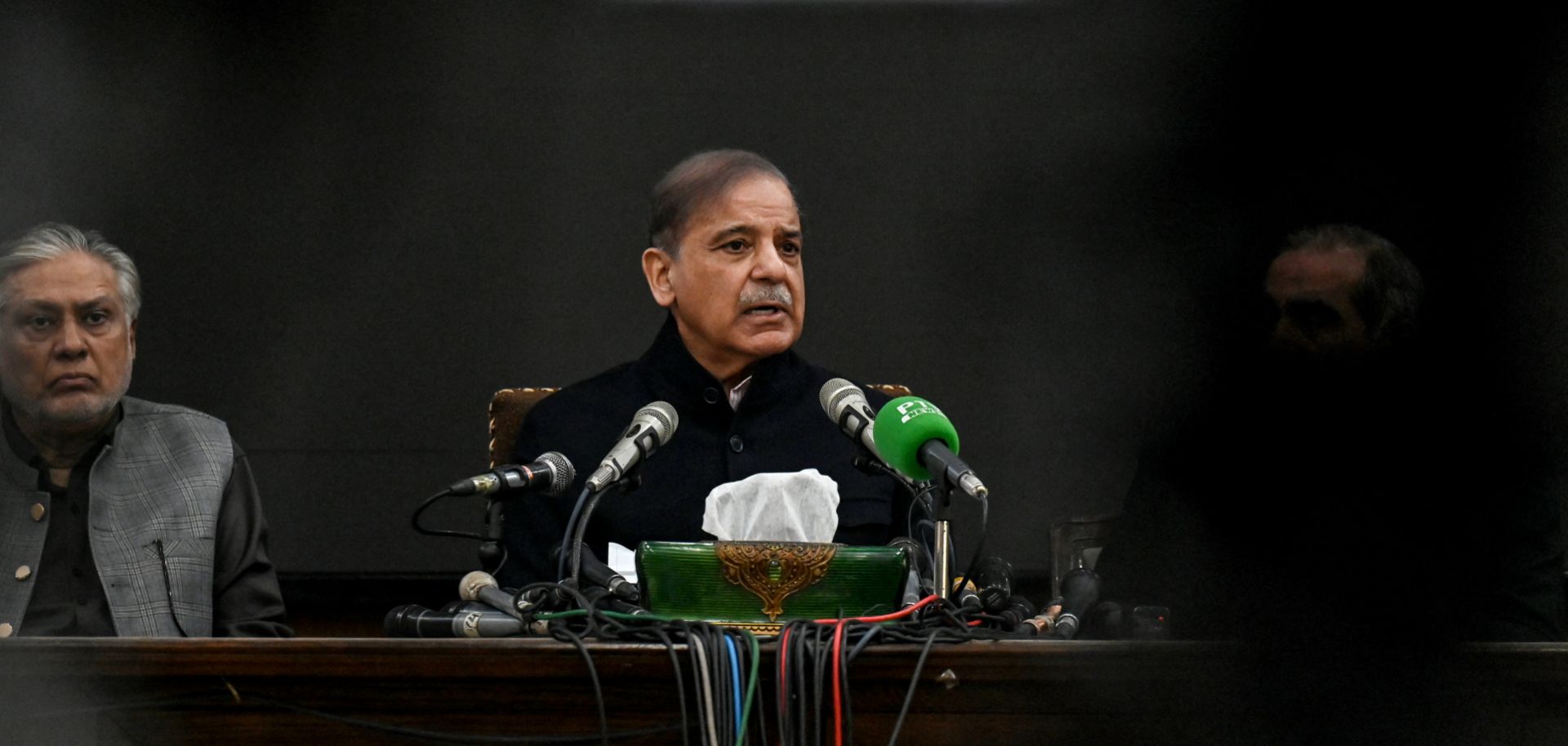With the help of the military, Pakistan's new government will prioritize negotiating a deal with the International Monetary Fund and addressing the country's economic and political crisis by cracking down on dissent. But the coalition's internal fragmentation and unpopularity will hinder its reform efforts, exacerbated by election-related unrest. According to the Pakistani constitution, President Arif Alvi must summon the National Assembly by Feb. 29 to commence the inauguration of the lawmakers who were elected in the country's inconclusive general ballot on Feb. 8, where no single party secured a majority. Shortly after the election, the Pakistan Muslim League-Nawaz (PML-N), Pakistan People's Party (PPP) and other minor parties, including the Muttahida Qaumi Movement (MQM), agreed to establish a coalition government. Meanwhile, the coalition of independent candidates affiliated with former Prime Minister Imran Khan's Pakistan Tehreek-e-Insaf (PTI), in conjunction with the minority Sunni Ittehad Council Political Party, have indicated they would assume...

